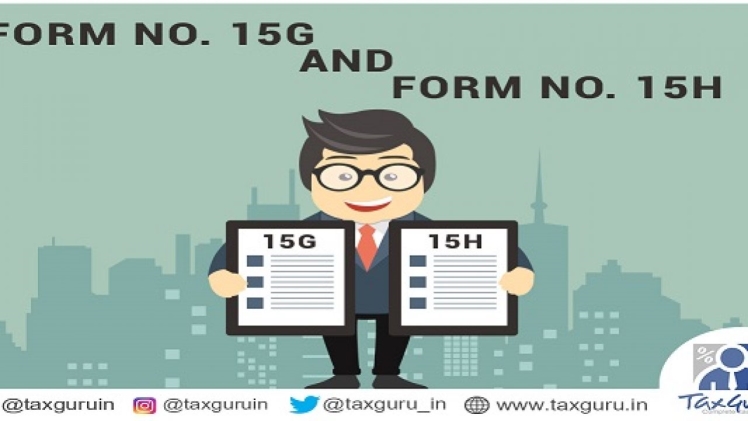Taxes are a necessary evil. We all know that they exist and we often grudgingly pay them to the government, but what do we really know about saving taxes?
The concept of Tax Deducted on Source (TDS) is a basic principle in the Income Tax Act, 1961. TDS means that an entity deducts tax from your income and pays you the remaining amount. So, if your earnings originate from a wage, a business, investment, or house property, certain taxes may be withheld before they are given to you.
The Indian Income Tax Act of 1961 provides for the deduction of tax at source (TDS) on certain types of income. One such type is interest income paid by banks and financial institutions. If you earn more than 40,000 INR annually from your bank account(s), then TDS will be deducted from the interest earned – unless you appeal to use Form 15G to avoid it. This blog will provide a guide on the eligibility criteria of Form 15G and the repercussions of missing out on filing the form.
What is Form 15G?
Form 15G is a way to avoid paying taxes on your FD interest.
Banks deduct TDS from your FD interest income before crediting it to your account. But if you have no taxable income, then Form 15G can be used to avoid TDS on FD interest. You just need to declare through the form that the bank should not deduct any tax because of your nil taxable income and submit it to the bank so they will pay out all of your earned interest without taking any taxes first!
Who is eligible to apply for Form 15G?
If the following eligibility criteria are satisfied, anybody can apply for Form 15G:
- You must be a resident Indian or a member of a HUF (Hindu Undivided Family)
- Your age must be less than 60 years.
- Your tax liability must be nil.
- The entire amount of income from the interest you have generated must be less than the threshold limit of the current tax slab. For the financial year 2021-22, the threshold limit is set to 2,50,000 INR.
Where Form 15G can be used?
Form 15G can be used to avoid paying TDS in the following scenarios:
- Income from Interest in banks and other non-banking financial institutions to avoid TDS deductions
- Deposits at the Post Office are subject to TDS deduction unless Form 15G is submitted
- Early EPF Withdrawals for withdrawing an amount of Rs 50,000 or more before the completion of 5 years, as it is subject to TDS deduction
- Annual Rent income of Rs 2.4 lakhs or more
- Commission received by Insurance Agents is subject to a TDS deduction if the amount exceeds Rs 15,000 in a particular year
- Earnings from Corporate Bonds for income more than Rs 5000 a year
- Dividend Income of Rs 2,500 a year is subject to TDS
- Income of Rs 1 lakh or more from life insurance policies other than those stated in Section 10 (10D) is subject to a 5% TDS unless Form 15G is submitted prior to payout.
To avoid these TDS deductions, Form 15G needs to be submitted at the beginning of the year.
What is the procedure for obtaining Form 15G?
Form 15G can be obtained from a variety of sources, including the ones listed below:
- Bank’s branch
- Bank’s online website
- Employee’s Provident Fund Organization (EPFO) online website
- Income Tax Department online website
Repercussions of missing out on filing Form 15G
Form 15G is a form that needs to be submitted by the account holder of an interest-bearing savings bank account. Form 15G stops TDS (Tax Deducted at Source) to be deducted and deposited on your behalf. However, what happens when you forget or don’t submit Form 15G? You would not be penalized or fined; rather, the bank would take TDS from your earned interest and credit the remaining amount to your balance. If you have no tax due, you do not need to keep worrying about Form 15G because it is not applicable in this instance. All you need to do is to request a refund of the generated TDS by the bank while submitting your income tax returns.
When Form 15G must be filed?
Forms 15G remains effective for one fiscal year. To receive a TDS deduction for each fiscal year, you need to file the form once every year. Preferably, the form should be completed at the beginning of each fiscal year to notify the bank to not collect TDS from the interest earned by you in that fiscal year.
However, it is also possible to submit Form 15G anytime else during a fiscal year. In this case, the income from interest from the previous quarters will be eligible for TDS deduction by the bank. You can also get a refund of the amount by requesting the same when submitting your income tax returns.
Conclusion
Form 15G is an important document to submit if you are earning interest income and want to avoid TDS. Missing out on filing the form can result in tax deductions on interest income which should not be overlooked as the amount will only increase with time. In case you have not yet filed for Form 15G with your bank, it would be a good idea to file now while going through this post. Make sure that every year you submit your valid PAN number along with details about your existing savings account and file Form 15G, so there are no hassles when tax season rolls around!

